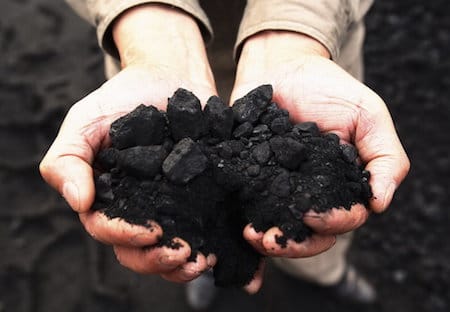It simply wouldn’t be an election year in the United States without the fictitious “war on coal” talking point rearing its ugly head. But something is different this year. In years past, the “war on coal” was admittedly fake, but today we really do have presidential candidates who have expressed interest in making the industry a thing of the past, and those quotes are being used as a catalyst to rally voters in coal-dependent states like West Virginia and Kentucky.
As we’ve mentioned in the past, both Hillary Clinton and Bernie Sanders – the two Democratic candidates remaining in the race – have said that the country needs to transition off of coal completely in order to focus our resources on producing clean, renewable energy.
And to stave off any fears about job loss or economic decline, both candidates have laid out plans that would put coal miners to work in the renewable industry (although Hillary Clinton has since walked her comments back slightly, saying that coal will be a part of our energy future.)
But it’s the second part of that plan – the part about putting coal miners to work in other fields – that continues to be overlooked by American voters and the political opponents trying to scare up a few more supporters.
Donald Trump, the presumptive nominee for the Republican Party, told crowds recently that he would revive the coal industry if elected President, a statement that was met with raucous applause from the crowd. The statement was made just days before the West Virginia primary, where Trump handily won, as he’s currently the only candidate with an active campaign on the Republican side.
Trump, like his former primary opponents, are pinning the decline of the coal industry on “bad policy” coming from President Obama, the EPA, and Democratic politicians, and the strategy has helped Republicans in the past. But again, this year is unlike any other, and it is becoming harder and harder to pin the demise of coal on a political party.
The decline in coal consumption in the state has nothing to do with the Clean Power rules from the Obama administration, but has everything to do with the fact that the world is simply turning away from coal as a viable fuel source. In late 2015, report after report after report emerged showing that coal consumption on the global scale was headed for an impressive decline, and possibly that dependence on coal had peaked all over the world. For example, China, one of the largest consumers of coal on the planet, was rapidly decreasing their dependence on the fossil fuel, and when this decline was paired with declining reliance in other countries and here in the U.S., it made the coal industry significantly weaker.
New stories are also beginning to emerge on a daily basis detailing the demise of the coal industry and tracking the decline in employment all the way back to the mid-1980’s, when automation began to displace more and more workers in the industry.
But this is presidential campaign season, and politicians rarely allow facts to get in the way of great talking points.
What Trump was doing in West Virginia was nothing more than pandering to the workers of an industry who are suffering from bad economics, not from bad environmental policies from the Obama administration. Renewable energy is on the rise and fossil fuel use is declining – and that is exactly what needs to happen. But the second part of that equation is one that only the Democratic politicians have discussed: If you are going to displace workers from one industry, you have to have a plan to get them trained in a new industry or risk a massive economic collapse that will ripple from local economies all the way to the nation’s economy.
Again, Democratic frontrunner Hillary Clinton has said that she wants to invest up to $30 billion to transition the country away from coal, and that money will be used to train current coal industry employees in the field of renewable energy. Not only would a move like this prevent job losses and stave off economic ruin, it would also help reduce carbon emissions and help to give the renewable industry a massive boost.
Not only is the decision to cling to coal environmentally dangerous, but it is also a loser in terms of economics. As coal companies continue to go bankrupt left and right, renewable energy projects are pulling in billions of dollars worth of investments in fossil fuel-friendly states like Texas, Oklahoma, and Kansas. If these same kinds of projects were being pushed in coal country, they would be bringing in the same kind of job-creating economic prosperity that these other areas are beginning to see.
At this point in human history, it is becoming unacceptable that we’re still relying on the same source of energy that fueled American life 275 years ago. That’s how long commercial coal production has been taking place in the United States. If we haven’t evolved enough to move away from burning “rocks” for energy, then we might very well be doomed as a species.
The new millennium ushered in an era of big talk on environmental protection and carbon emission reductions, but so far we’ve had 16 years of inaction or inadequate action. The talking points being delivered by some of the people running for president in 2016 provides little hope that the next four years will be any different than the last 16.
Subscribe to our newsletter
Stay up to date with DeSmog news and alerts







